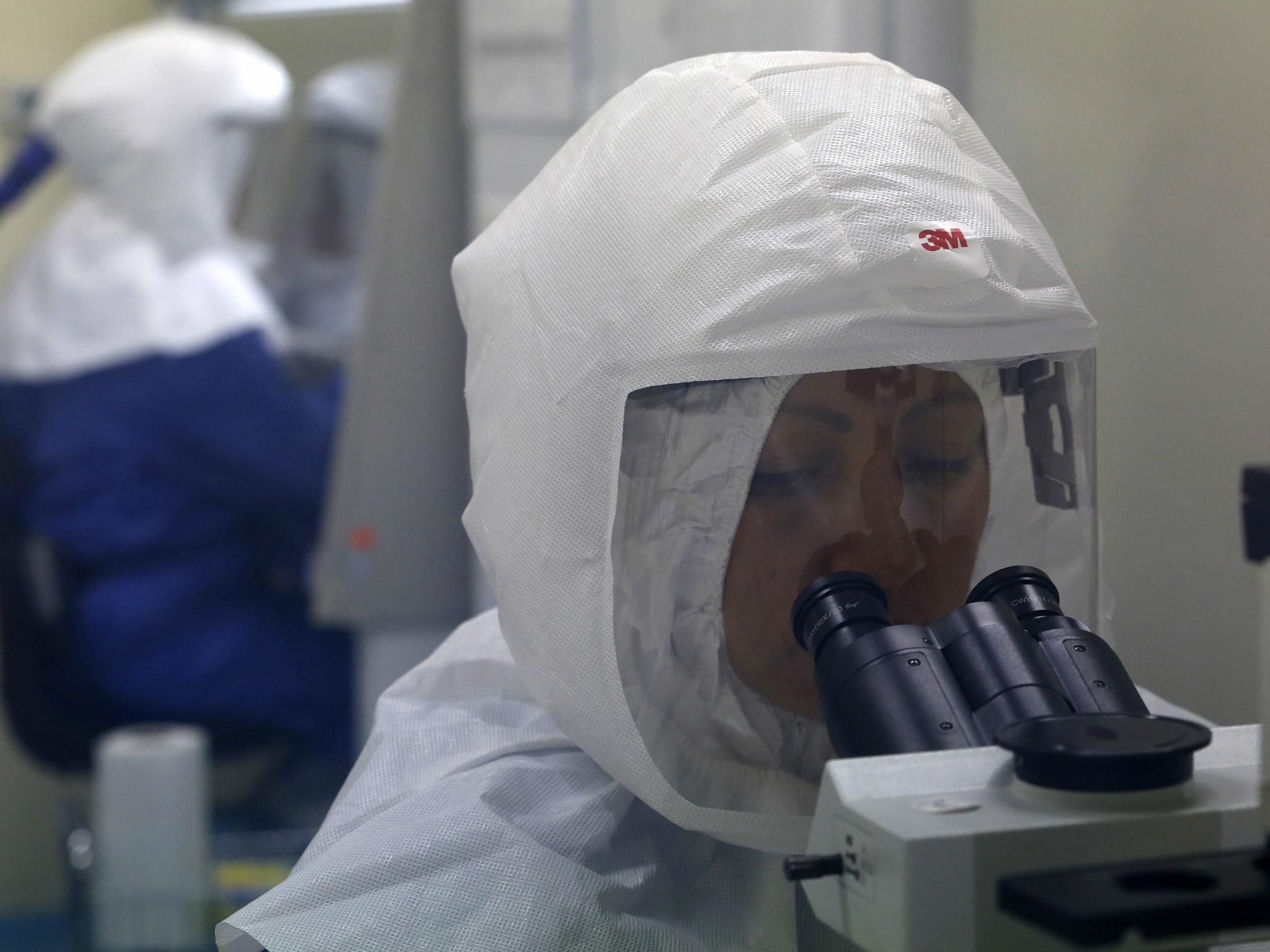US lifts ban on deadly virus experiments despite security risks
'I believe nature is the ultimate bioterrorist and we need to do all we can to stay one step ahead' says one scientist

The US government has lifted a three-year ban on funding the development of three deadly viruses.
Lifting the ban will help scientists "develop strategies and effective countermeasures against rapidly evolving pathogens that pose a threat to public health,” National Institutes of Health’s Director Francis Collins said during the announcement.
Development of three viruses - influenza, severe acute respiratory syndrome (Sars), and Middle East respiratory syndrome (Mers) - will begin shortly.
Between 2002 and 2003, nearly 800 people died around the world after an outbreak of Sars in China. However, no cases of the virus have been reported since 2004. Approximately 440 people died from Mers - also known as camel flu - between 2012 and 2015, according to the World Health Organisation.
Mr Collins said that a scientific review panel’s approval will be required before any centre or group can begin work on them, however.
NIH has not yet responded to a request for information on the makeup of the panel and what metric will be used to determine whether research is “ethical," a requirement per Mr Collins' statement.
"We have a responsibility to ensure that research with infectious agents is conducted responsibly and that we consider the potential biosafety and biosecurity risks associated with such research," Mr Collins said in a statement.
The previous Obama administration had halted the development of the diseases in 2014 primarily out of safety concerns and “in order to develop a new Federal policy regarding the funding of this research,” according to an NIH statement from that time.
The agency stated that though the research helped “define the fundamental nature of human-pathogen interactions...and inform public health and preparedness efforts,” it also posed “biosafety and biosecurity risks, which need to be understood better.”
The Zika virus - in pictures
Show all 5As CNN reported, the “US Centers for Disease Control and Prevention accidentally exposed dozens of workers to anthrax in 2014” and “vials of the deadly smallpox virus were found in a cardboard box in an unsecured refrigerator” at NIH as well.
The review panel will determine if the facility or institution wanting funding for the research has the "capacity and commitment to conduct [the research] safely and securely, and have the ability to respond rapidly" in case of an emergency.
Critics have suggested that development of the pathogens is too risky given the past breaches of safety protocol, which supercede any potential benefits to public health.
But, several scientists have suggested lifting the ban will be good for the research community.
Samuel Stanley, president of Stony Brook University and chair of the National Science Advisory Board for Biosecurity, told NPR that “there has been increased scrutiny of laboratories working in this area, which can lead to an even more robust culture of safety. But I also fear that the moratorium may have delayed vital research.”
"I believe nature is the ultimate bioterrorist and we need to do all we can to stay one step ahead,” Mr Stanley said.
Subscribe to Independent Premium to bookmark this article
Want to bookmark your favourite articles and stories to read or reference later? Start your Independent Premium subscription today.

Join our commenting forum
Join thought-provoking conversations, follow other Independent readers and see their replies